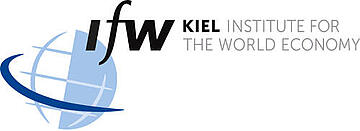
About Us
Many developing country governments consider SEZs and the like (industrial parks, free zones, export-processing zones) the golden way to help their countries attract foreign investment and partake in the benefits from global production networks.
However, reliable evidence on the success (or failure) of SEZs in achieving these goals is sporadic and mixed. And even when SEZs generate overall gains for their host countries, not everyone can benefit equally. Inequality among workers, firms and regions within these countries can rise.
We are a consortium of five research institutions from Africa, Asia and Europe that joined forces to better understand the role of SEZs in the economic development process. As part of a four-year research project (2020-2023), our team conducts empirical research using observational data on various angles of this topic.
The EconomistSpecial Economic Zones (SEZs) are all the rage among governments hoping to pep up their trade and investment numbers.
April 4, 2015
Partner

CBS is a globally recognised business school in Denmark with a broad focus and deep roots in the Nordic socio-economic model. Our faculty has earned a reputation for high-quality disciplinary and interdisciplinary research and education. This unique global profile carries the obligation to address critical challenges in our research and to develop the transformational capabilities of students, graduates and business leaders via our educational activities and opportunities for lifelong learning.

The Institute of Statistical, Social and Economic Research (ISSER) serves as the research wing under the College of Humanities, University of Ghana and engages in a number of policy relevant research whose findings are intended to help policy makers on the best policy decisions to make for national development.

Jadavpur University is an internationally recognised premier university in India. It is an urban university with a global perspective and is dedicated to creating leaders who will fashion a more humane and just world. Following in the footsteps of its predecessor, the University not only engages itself in teaching and research of international quality, but also provides societal services for the benefit of rural and urban populations.
The Kiel Institute for the World Economy sees itself as the research institute in Germany for globalization issues. Kiel Institute researchers investigate the drivers and effects of international economic activity, the integration and disintegration of global markets as well as the opportunities and limits of political action in open economies. The Institute analyzes the world economy not just as the sum of individual national economies, but rather as a global economic area that must be understood and shaped. The Institute identifying emerging global economic challenges and developing practical solutions that are compatible with open markets and competition while also taking account of everyone’s standard of living.

The National Center for Socio-economic Information and Forecast (NCIF) was founded in 2004 as a research institute under the Ministry of Planning and Investment of Vietnam (MPI). The NCIF is mandated to analyse, forecast and warn on domestic and international socio-economic developments, serving the socio-economic state management. Its tasks also include assessing the impact of social and economic policies. Recently, the NCIF is the only organization that prepares periodic economic forecasts for the MPI, which are included in the socio-economic reports submitted to the government. In addition, the NCIF has provided quality consultant services to domestic and international banks/enterprises/organizations with experiences in conducting variety of research relating to macroeconomic policies, trade, FDI, productivity and social issues e.g. poverty, inequality, environment. The center has close cooperation with domestic and international donors/research institutes such as Irish Aid, Korea Institute for International Economic Policy (KIEP), World Bank, UNDP, and the British National Institute of Economic and Social Research (NIESR).
Meet all Special Economic Zones Experts
Funding

The research project is funded by the Riksbankens Jubileumsfond of Sweden.
